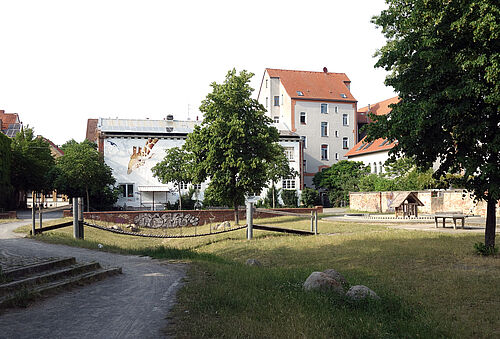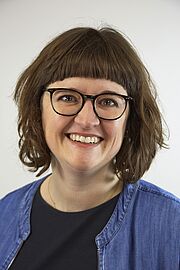Promoting Urban Nature and Biodiversity

How can cities and communities protect their green and open spaces and turn them into places where biodiversity and natural processes are respected and citizens can experience nature in their neighborhoods? How can uniform, intensively managed green areas be transformed into diverse urban nature rich in biodiversity? How can citizens and businesses be involved in these processes?
We create practice-oriented knowledge products, identify challenges in implementation, and analyze and disseminate examples of good practice.

Ongoing Research Project and Studies
Recommendations for Municipalities to Consider Biodiversity in the Context of Urban Development Funding (BioVibeS)
Urban development funding provides important contributions to sustainable urban development. The current conditions for urban development funding also enable the implementation of biodiversity-promoting measures. In order to make these possibilities better known and applicable, there is a need for stronger technical and conceptual support of municipalities. This includes presenting the municipal scope for action and provision of practical information, but also supportive conditions by the federal and state governments.
To address these challenges, the project "Recommendations for municipalities on the consideration of biodiversity in urban development funding areas" aims to evaluate the integration of measures for biodiversity in urban development funding areas. Based on this, a handbook for municipalities (i.e., for municipal planning offices and nature conservation authorities) will be created on measures for the protection of biodiversity in urban development funding areas. For this purpose, a collaborative process with various stakeholders will be initiated (learning alliance) to ensure that the handbook is practice-oriented and tailored to the needs of municipalities. Finally, recommendations for the federal and state level will be derived and options for the dissemination of the handout will be identified and used.
Urban Green Infrastructure in Detail – Sample Solutions and Recommended Action
A wealth of research, guidance documents, and best practice examples have recently emerged on "urban green infrastructure" (UGI). Nevertheless, municipalities are faced with the challenge of utilizing and implementing UGI in view of the complexity of spatial scales, planning phases, and fields of action. To support municipal planning practice, the “Masterplan Stadtnatur” (BMU 2019) envisions the provision of a "toolbox" with recommendations for action. The development of such a web-based toolbox is the goal of the project "Urban green infrastructure concretized – sample solutions and recommendations for action". The focus is on approaches and methods for mapping and evaluating existing UGI elements and ecosystem services. Furthermore, tools and measures for planning, implementation, and maintenance of UGI are provided. The tools cover a broad range of actions including qualification and connectivity, UGI in new constructions, and combined grey-green elements. In addition, advice is given on possible actor constellations, participation methods, and municipal steering and monitoring processes. The theoretical knowledge will be supplemented with the practical experience from four municipalities and regions. They will be involved to discuss the challenges of implementing urban green infrastructure and knowledge needs for the toolbox.
Completed Research Project and Studies
Urban Wastelands in the Spotlight
During her time at TU München, Prof. Rieke Hansen examined the relationship between urban wastelands as urban open spaces and their potential for urban development, and outlined the role of those areas for nature conservation and recreation. The study was funded by the German Federal Agency for Nature Conservation.
- Broschüre: Stadtbrachen als Chance – Perspektive für mehr Grün in den Städten (Herausgeber Bundesamt für Naturschutz, 2013)
- Hansen R., Heidebach, M., Kuchler, F., und Pauleit, S. (2012). Brachflächen im Spannungsfeld zwischen Naturschutz und (baulicher) Wiedernutzung. BfN-Skript 324. Bonn – Bad Godesberg.


